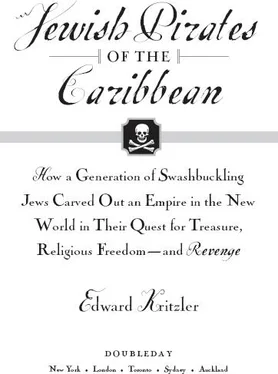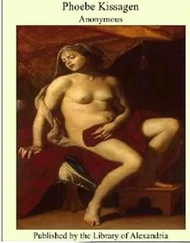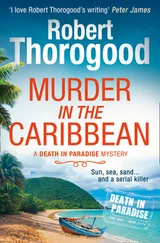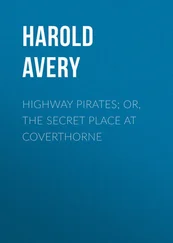Edward Kritzler - Jewish Pirates of the Caribbean
Здесь есть возможность читать онлайн «Edward Kritzler - Jewish Pirates of the Caribbean» весь текст электронной книги совершенно бесплатно (целиком полную версию без сокращений). В некоторых случаях можно слушать аудио, скачать через торрент в формате fb2 и присутствует краткое содержание. Год выпуска: 2008, ISBN: 2008, Издательство: Knopf Doubleday Publishing Group, Жанр: Старинная литература, на английском языке. Описание произведения, (предисловие) а так же отзывы посетителей доступны на портале библиотеки ЛибКат.
- Название:Jewish Pirates of the Caribbean
- Автор:
- Издательство:Knopf Doubleday Publishing Group
- Жанр:
- Год:2008
- ISBN:9780385528368
- Рейтинг книги:3 / 5. Голосов: 1
-
Избранное:Добавить в избранное
- Отзывы:
-
Ваша оценка:
- 60
- 1
- 2
- 3
- 4
- 5
Jewish Pirates of the Caribbean: краткое содержание, описание и аннотация
Предлагаем к чтению аннотацию, описание, краткое содержание или предисловие (зависит от того, что написал сам автор книги «Jewish Pirates of the Caribbean»). Если вы не нашли необходимую информацию о книге — напишите в комментариях, мы постараемся отыскать её.
Jewish Pirates of the Caribbean — читать онлайн бесплатно полную книгу (весь текст) целиком
Ниже представлен текст книги, разбитый по страницам. Система сохранения места последней прочитанной страницы, позволяет с удобством читать онлайн бесплатно книгу «Jewish Pirates of the Caribbean», без необходимости каждый раз заново искать на чём Вы остановились. Поставьте закладку, и сможете в любой момент перейти на страницу, на которой закончили чтение.
Интервал:
Закладка:
While the Jewish youngsters may have looked to Columbus as their Moses (as he himself did), Jamaica was no Promised Land. Still, for teenagers forced to lead underground lives in Spain, a year’s idyll on a tropical island was nearly as good. When not swimming around their rotting ships, or diving off a yardarm, they wrestled on the beach and otherwise contested for the favor of the naked Indian girls who daily brought food and lingered to watch the young gods at play.
If Columbus did entrust them with the cache of gold, he would undoubtedly have called the boys to his cabin and instructed them to deliver it to Chief Huero, his Indian ally and the island’s most powerful cacique, who had outfitted Méndez on his successful crossing to Hispaniola and remained loyal after a prophetic night when Columbus’s God “ate the moon.” Columbus had noted in Zacuto’s almanac that a full eclipse was due in the early evening of February 29, 1504. The natives, turned off by the rapacious ways of the mutineers, no longer saw their visitors as gods, and, having their fill of Spanish trinkets, had begun withholding food supplies from the Spaniards, who, Fernando wrote, “consumed more in one day than [the Indians] ate in 20.” 21
Columbus saw the celestial event as an opportunity to rectify this “by taking their moon away.” On the day of the eclipse, he summoned the chiefs for “a feast and a palaver,” and told them: “Attend tonight the rising of the moon: She will rise inflamed with wrath, signifying the punishment God will visit upon you.” When the eclipse began shortly after sunset, Columbus retreated to his cabin. “The Indians grew so frightened,” wrote Fernando, “that with great howling and lamentation they came running in all directions to the ships, laden with provisions, and praying for the Admiral to intercede with his God that He might not vent His wrath upon them.” When the moon was in full shadow, Columbus emerged. He had pleaded with his God, he told them, who agreed to forgive them as long as the Indians kept the Christians supplied. As proof, “they would soon see the moon’s anger and inflammation pass away…From that time forward,” wrote Fernando, “the Indians were diligent in providing us with all we needed and were loud in the praise of the Christian God.”
The eclipse vindicated Huero, who afterward presented Columbus with a tribute of small disks of gold from his previously undisclosed mine. Considering Columbus’s desperate straits, it is thought he called on Huero to safeguard his gold. If so, he would have had his young allies transport it under the cover of darkness.
Although there is no hard evidence for this account of Columbus’s alleged gold mine, it is supported by later developments, including the return to Jamaica of the converso youths after their rescue. Having left the land of the Inquisition, they chose to remain in Hispaniola when the rescue ships landed in Santo Domingo, rather than accompany Columbus and the crew back to Spain.

In November 1504, Columbus had been back only three weeks when his patroness Isabella died. The following May, the king offered him a rich estate and pension if he would relinquish his rights of discovery. Ferdinand regretted allowing Isabella to persuade him to empower Columbus with all sorts of rights and privileges, but although Columbus was in declining health, he was not about to surrender his hard-won titles. A little more than a year later, he made out his will, and died the next day (May 20, 1506) with his loyal mate Diego Méndez and son Fernando by his side.
Three years afterward, Columbus’s eldest son, Diego, having inherited his titles, arrived in Hispaniola to replace Ovando as governor. Accompanying him were his younger brother Fernando and his uncle Bartholomew. This was their first trip back to the Indies since their rescue. A contemporary painting shows them seated around a conference table in the governor’s mansion.
One issue they hoped to resolve was dealt with right away when Diego recruited “Portugals from Hispaniola” 22to reconnoiter Jamaica in advance of settling the island. Since Diego’s uncle and brother left for Spain right after the “Portugals” returned, it is apparent they had come for the left-behind gold of Columbus. Nothing more is heard of the sixty-three gold pendants, but Chief Huero’s mine begat the legend of Columbus’s “secret golden mine, which hath not yet been opened by the King of Spain or any other.” 23
To lead the Jamaica expedition, Diego had appointed Juan d’Esquivel, a converso who served under Bartholomew. 24Landing on the coast of Huero’s domain, Esquivel founded Melilla, which is the name of a Spanish port in Morocco that—coincidentally or not—alone in the empire was exempted from the expulsion order and remained a haven for Jews after the port was captured by Spain in 1497. 25When Esquivel returned to Hispaniola, and, it is thought, delivered the sixty-three medallions to Bartholomew, Diego appointed him Jamaica’s governor and directed the loyal conversos to return to the island. Thus began the settlement of Jamaica, a Caribbean island that, like Melilla in Morocco, would henceforth serve as a haven for Jews.
In 1511, a flotilla of ships, carrying more than a thousand settlers, dropped anchor in Santa Gloria near the beach where Columbus was marooned. Expecting to find gold and create a New World capital rivaling Seville, the settlers laid out a city two miles long and named it Nueva Sevilla del Oro (New Seville of Gold). Unlike the Portugals, the newcomers were of minor Spanish nobility and had come to seek their fortune. A contemporary wrote, “They fancied that gold was to be gathered as easily and readily as fruit from trees.” 26However, when they realized they had to dig for it, and even then with rare success, disillusion quickly set in. The toilsome job of excavating the ore from the bowels of the earth was given over to the Indians.
Within a decade, gold was being mined in Jamaica. But after Diego Columbus and the king had taken their share, the amount from the smelting house was not enough to satisfy the hidalgos, among whom were some former mutineers and their leader, Francisco Poras. 27That these rebels chose to return to the island they had risked their lives to leave suggests they believed there was more gold in Jamaica than what was being mined. 28It is therefore not surprising that the Columbus family and their allies, the Portugals, kept Huero’s mine a secret.
Despite the paucity of gold, island life was pleasantly rewarding. Jamaica was a fertile land, and the average allotment of 150–200 pacified Indians per settler meant that one could have a successful ranching operation, made all the more comfortable by a modest harem of baptized Indian women. Jamaica was developing nicely as a food depot supplying passing ships and breeding horses for the conquistadors. But then the Indians started dying. Unused to the white man’s germs, they expired when they got sick, and a plague of smallpox finished them off. Soon everyone wanted to leave.
In 1513, Esquivel reported that many of New Seville’s colonists had left for Cuba, leaving behind their caiguaes (Portuguese servants), who had moved to “the south side of the island to carry on the cultivation of foodstuffs.” 29The caiguaes had been considered personal baggage, and as such did not have to produce the “clean blood” certificates required of other settlers in the colony. Later developments indicate they were conversos.
While New Seville struggled, the south coast settlement flourished. Though the community was never formally recognized, a cryptic remark by Peter Martyr—from 1511 the “Royal Chronicler of the Indies”—makes an oblique reference to the conversos. After being made abbot of Jamaica in 1514, he wrote the king: “There are two settlements but only one will have my church.” 30The following year, a report from Jamaica’s new governor, Francisco Garay, pointedly referred to the community. Having replaced Esquivel, Garay wrote his sovereign on the state of the island, and underlined his intention “to see the country and the site of the town on the other side.” 31Later, he too would desert the island to join in the conquest of Mexico, leaving behind more caiguaes to join those who had come before.
Читать дальшеИнтервал:
Закладка:
Похожие книги на «Jewish Pirates of the Caribbean»
Представляем Вашему вниманию похожие книги на «Jewish Pirates of the Caribbean» списком для выбора. Мы отобрали схожую по названию и смыслу литературу в надежде предоставить читателям больше вариантов отыскать новые, интересные, ещё непрочитанные произведения.
Обсуждение, отзывы о книге «Jewish Pirates of the Caribbean» и просто собственные мнения читателей. Оставьте ваши комментарии, напишите, что Вы думаете о произведении, его смысле или главных героях. Укажите что конкретно понравилось, а что нет, и почему Вы так считаете.












